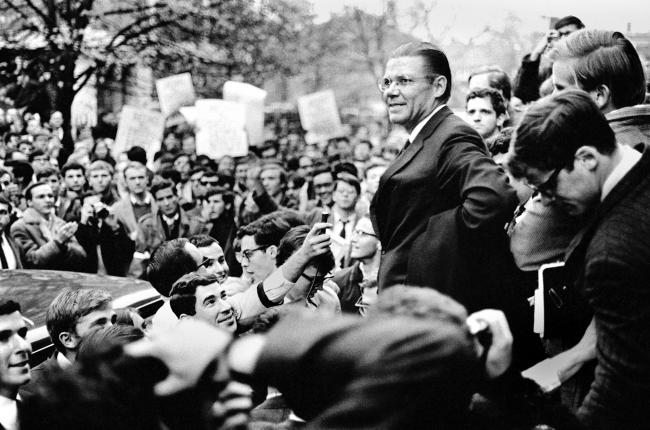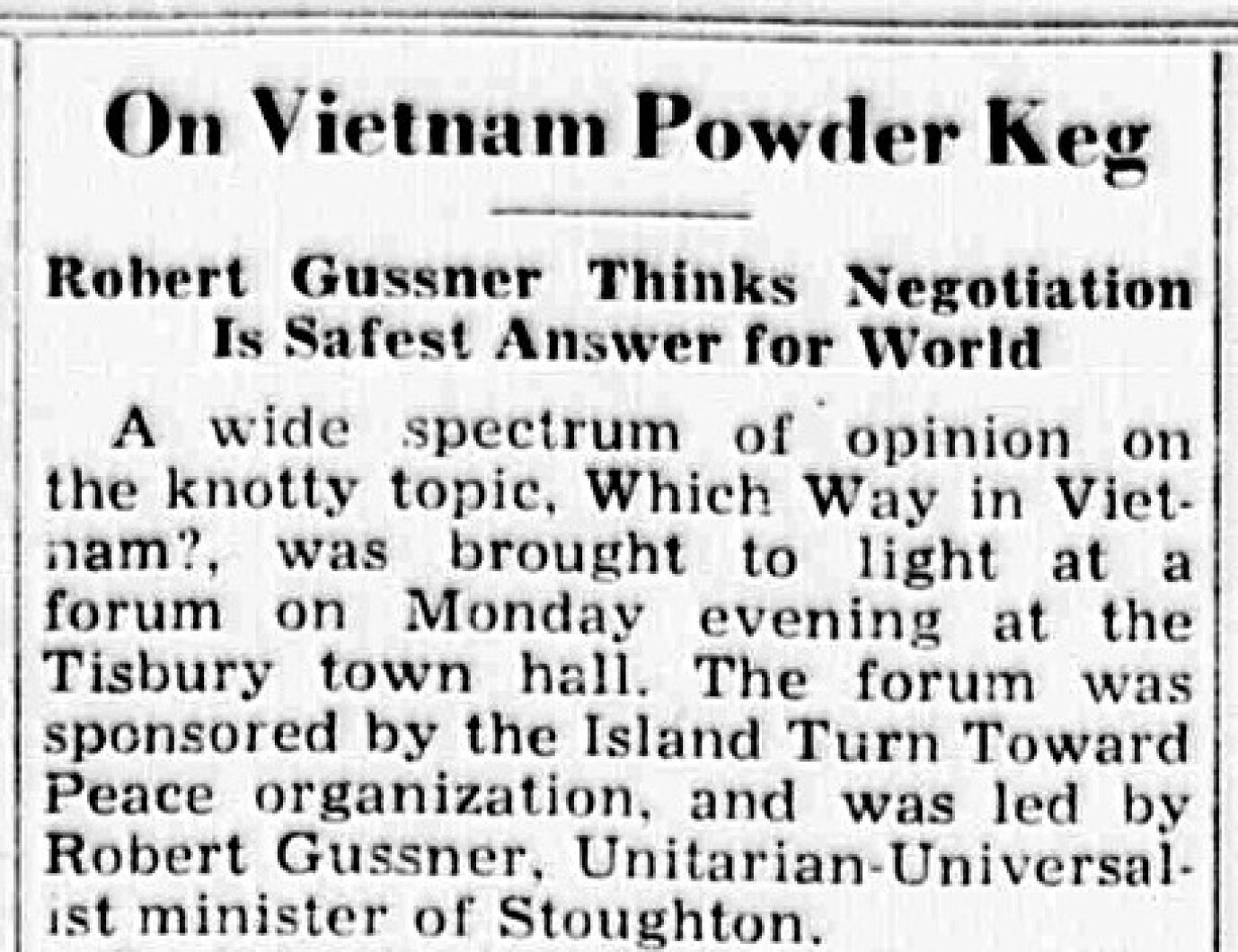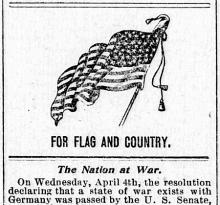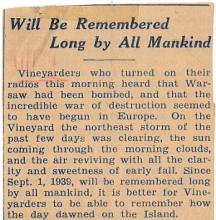A wide spectrum of opinion on the knotty topic, Which Way in Vietnam?, was brought to light at a forum on Monday evening at the Tisbury town hall. The forum was sponsored by the Island Turn Toward Peace organization, and ws led by Robert Gussner, Unitarian-Universalist minister of Stoughton.
In introducing Mr. Gussner, Mrs. Paul Macy, director of Turn Toward Peace on Martha’s Vineyard, told the audience, “the most difficult thing in the world is to change our ideas. We are living in an era of great change, both economic and domestic, both in this country and throughout the world. These changes are reflected in our thinking on many issues. We are concerned here tonight with American policy in Vietnam and - more broadly - our changing ideas about world peace and how best it can be obtained and preserved.”
In a concise, rapid-fire delivery, Mr. Gussner sketched for the audience the historical background of the present conflict in Vietnam; and the changing policies of this government since the country came under our aegis in 1954.
Three Possible Solutions
At present, he said, we appear to be confronted with three possible solutions: (1) A full-scale war, as in Korea; (2) a stalemate, with the area of conflict circumscribed, and neither side winning; and (3) negotiating ourselves out of Vietnam.
None of these solutions, he felt, to be ideal and all are fraught with possible hazards. The last mentioned seemed to offer the greatest possibility for a peaceful world in the long run. However, Mr. Gussner was quick to warn that a too rapid removal of our forces was almost certain to be followed by reprisals against the South Vietnamese people. In his opinion the United States must maintain a “presence” in the country, in an advisory capacity and with economic aid, This to be under United Nations jurisdiction.
Following Mr. Gussner’s opening remarks, the Rev. George S. Bieber of Christ Methodist Church in Vineyard Haven and a member of the executive board of Turn Toward Peace, spoke for a few minutes on the function of the organization itself. “Turn Toward Peace,” he said, “is a search, not an answer. It embraces people of widely differing beliefs. We hope not to change your mind tonight but to open it.” Mr. Bieber then threw the meeting open to discussion and asked for questions from the floor to be directed at Mr. Gussner.
The questions, which were quick to come, showed the audience to represent both the “hawks” who would press the war in Vietnam to a swift and final conclusion and the “doves” who are equally ardent for peace.
“Why can’t we just go in and win?” one man fired at the chair. Both Mr. Gussner, and others in the audience, felt that in this nuclear age, with the balance of terror so delicately poised, there is no sure “winning” any longer.
The “Domino Theory”
The “domino theory” (that is, that if Vietnam falls, all of Asia will fall to China) was raised by someone else in the audience and refuted by Mr. Gussner. With proper international safeguards, he said, it is certainly doubtful that nearby countries would necessarily fall.
Faced with the present dilemma in South Vietnam, what can we do about world peace on a broad scale? it was aked. Mr. Gussner is reply spoke of “American initiatives.” Among these initiatives are cultural exchange programs, international cooperation on scientific and economic programs for human betterment, and demonstrations of good will and good faith.
One such demonstration, he said, would be the conversion of our biological warfare experiment station at Fort Dietrich into a world health center. This last suggestion brought a sharp rejoinder from the audience that “we are already behind the Russians in biological warfare.”
In the light of the magnitude of the problem confronting the world, the meeting at the town hall seemed, indeed, to provide “not an answer but a search.” The very day the discussion took place was marked by the landing of American Marines on the coast of South Vietnam. However much the discussants differed as to possible solution to the conflict, all were united in a mutual concern.











Comments